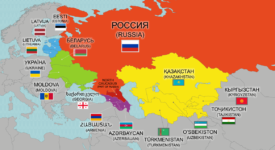The European Union is considering suspending sanctions against Belarus President Alexander Lukashenko as a “reward” for releasing six opposition leaders – widely seen as the last political prisoners in the country – from jail in August this year. The EU suspension of sanctions would include ending asset freezes and travel bans against Mr Lukashenko and about 175 other individuals and 14 groups. The decision must be made by the end of October when the current batch of sanctions expires and it must be either prolonged or entirely scrapped.
Brussels decided to wait to see how yesterday’s elections (11 October) would end. The EU confirmed that “this is a gesture in response to the gesture made by the regime when it freed the political prisoners this summer”. However, none of the released opposition leaders was allowed to take part in the last weekend’s elections. An EU source moreover stressed that the suspension would be a “political signal” from Brussels to Minsk. EU foreign ministers are meeting today (12 October) to decide on how to approach the ex-Soviet state. Brussels would allegedly like to see “critical engagement” with the aim to boost mutual economic and political ties.
The punitive measures against Belarus were introduced in January 2011 due to human rights violations. The set of 2011 sanctions followed other measures, which had already been in place from 2004. Except for asset freezes and travel bans, current measures include for example an embargo on arms and equipment, which might be used for internal repression. Minsk has been already discreetly informed that the suspension of sanctions might become a reality. However, the country’s opposition called on the EU to keep the measures against President Lukashenko – once called “Europe’s last dictator” – and his inner circle. Mr Lukashenko has been in power since 1994.







